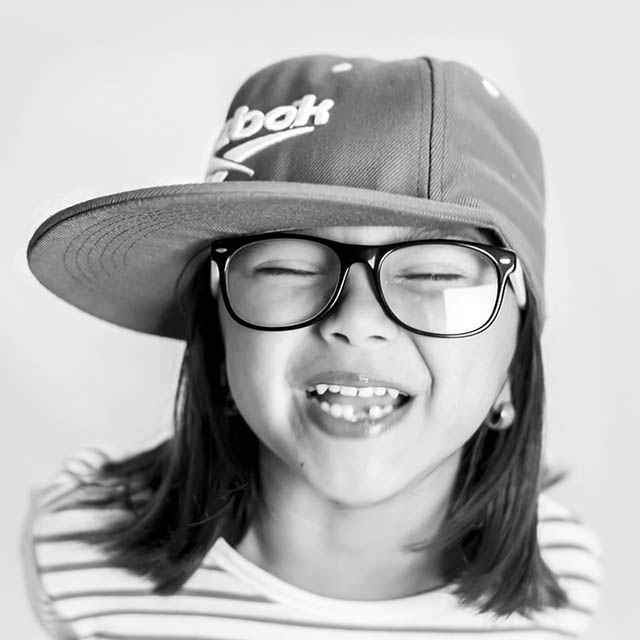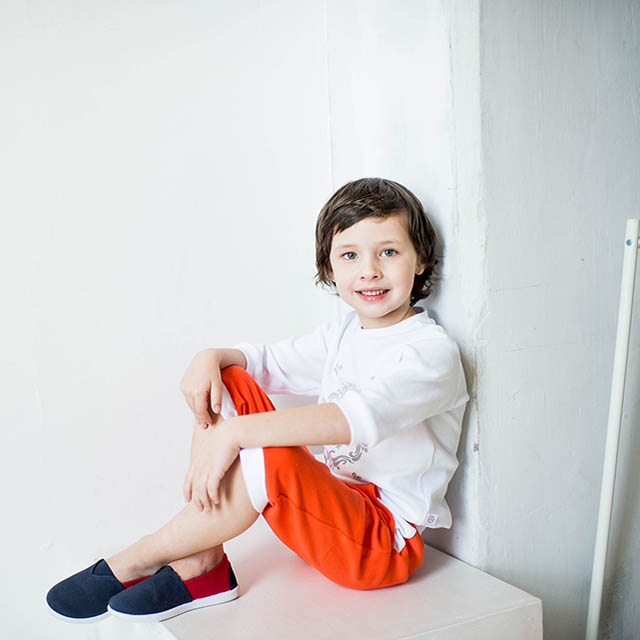PEDIATRIC EYE CARE
For children, a crucial aspect of their health at each stage of life, includes vision.
Children grow rapidly in their early years and their eyes and vision needs can change quickly – that’s why regular eye exams at different ages are so important.
When it comes to eye care, there are certain basics that most people already know. The importance of annual eye exams, the need for corrective eyewear such as glasses or contacts, and protecting your eyes from the sun’s harmful rays are well-known elements of your vision care. For children, the basics of good eye care are slightly different and a crucial aspect of their health at each stage of life.
Dr. Moshe Schwartz and Dr. Jenny Chen recommend scheduling the first infant eye exam at 6 months. By this time, your baby’s vision should allow them to see colors, see and focus well at far distances, and easily follow moving images. For this first eye exam, the doctor will make sure that your child has correct eyesight, while checking for common refractive errors like myopia (nearsightedness), hyperopia (farsightedness), strabismus (misalignment or crossing of the eyes), or astigmatism.
Premature babies or those who show signs of any developmental delays may need more than just regular eye exams. In these cases, the doctor will want to check the child’s vision as it progresses over time so that any change can be closely monitored and carefully managed.

Eye Development By Age
Birth – 24 Months
During the first few months of life, a newborn’s visual system is not yet fully developed. As time passes, a baby’s eyes gradually begin to focus, move around, and see the world around them.
Between 7-24 months of age, babies’ vision and physical movements advance quickly. Physical motions like crawling, standing up, and grasping onto things are part of their visual abilities and motor skills. By this stage, they are usually able to throw a ball and crawl after it or stand to reach a small object on a table. Should you notice any difficulties with these kinds of activities, contact us for a consultation.
2-5 Years
The preschool years are filled with new learning experiences and social interactions. Every day, your child will develop fine motor skills, which are essential skills they use to hold a pen, a fork, or a book correctly. Visual perception is equally important, as it gives them the tools to be able to read, write, play sports, draw pictures, and use a computer. Because 80% of learning is visual, should a child have any difficulty experiencing clear vision, his or her learning can be affected. The longer it goes untreated, the more difficult it can be for your child.
6-18 Years
Typically referred to as “the formative years,” kids in this age group change drastically from young children to preteens to teenagers. So much is evolving in their young lives academically, socially, and physically. With all these changes, it’s far too common to miss out on how their eyes are affected.
Vision problems like nearsightedness often begin during childhood, so it’s imperative that kids have annual eye exams. During the exam, the doctor will check for visual acuity, eye teaming (how the eyes work together), color vision, peripheral (side) vision, and more.
Glasses and Contacts for Kids
Children who need vision correction have a range of options. Glasses in the latest trends and designs provide clear vision while making your kids feel stylish and self-confident. Contacts may be a good solution for kids who are active in sports or concerned over their appearance. Contacts are generally recommended for kids between the ages of 11-14, but it’s always recommended to speak with Dr. Moshe Schwartz for any specific questions.
Learning and Vision
Sometimes, changes in a child’s behavior may be blamed on hormones, an incident at school, or even a learning disability, when they’re actually vision-related. If your child is having difficulties in school, it can be indicative of a vision problem.
Pay close attention to any of these signs:
- Avoiding reading
- Blurry vision
- Double vision
- Excessive blinking
- Eyestrain
- Losing their place often while reading
- Persistent headaches
- Poor reading comprehension
- Short attention span
- Tilting the head to one side
These physical symptoms can cause emotional reactions like frustration, irritability, or feelings of inferiority. That’s because they can affect things like reading, writing, homework, and being able to see the board clearly, and kids who struggle with this can act out their frustration.
If your child is showing any of these signs, contact one of our eye doctors Dr. Moshe Schwartz and Dr. Jenny Chen in Eyesymmetry Vision Center to schedule a consultation. We have the expertise, understanding, and top medical technology to diagnose and treat all kinds of vision difficulties in school-aged children.
Our Unique Approach to Children's Eye Care
Your children need more than just standard eye care. At Eyesymmetry Vision Center, we understand that need. Dr. Moshe Schwartz treats pediatric patients from babies all through young adulthood.
Our youngest patients deserve extra special care, understanding, patience, and a gentle approach along with top medical training and expertise. Contact us today and let our caring, experienced staff help care for your family’s vision needs for years to come.

